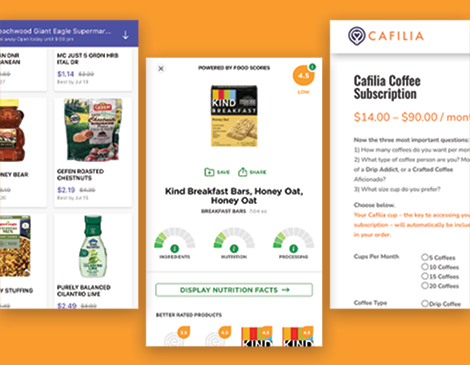Grocery shopping can be hard sometimes; it’s OK to admit it.
From planning out the shopping list to finding another store when the one you’re at doesn’t have something you’re looking for, it can be tough to not want to pack it in and place yet another order at that Thai place down the street. And while we’re all for visiting as many local eateries as possible, we also understand the importance of having a stocked fridge.
What better way to do that than with these three food apps that help the environment just as much as your wallet?
Cafilia
Coffee can be at the top of the food pyramid, especially when it comes to early-morning meals. And the choices are numerous. A Cleveland-based subscription network plans to make it easy to find local options: with Cafilia, you pay a monthly subscription fee (between $14 and $90), and then take your reusable cup to a selection of 21 Northeast Ohio cafes to fill up for free. Subscribers are able to choose between five, 10, 15 or 20 coffees a month, and are able to customize the experience by including info about what kind of coffee they like. becafilia.com
Flashfood
Buying produce can be intimidating. Flashfood aims to eliminate that hassle by having a free app that lets users find food and produce near them for 50% off its sticker price. Users can pay in the app using a credit or debit card or SNAP EBT card and then can pick their order up in the Flashfood zone in the grocery store they ordered from. Along with saving users money, Flashfood is built to stop food waste. Flashfood zones are available at almost every Giant Eagle in Northeast Ohio, along with certain Save-A-Lots and Meijer. flashfood.com
EWG Healthy Living
Nutrition facts, sustainable selections, cost, brands — there's a lot to consider and keep track of while shopping. Environmental Working Group’s app can help you while you're roaming the aisles, as its website offers food scores for more than 80,000 products, which are graded on a scale of 1 to 10 using a formula that includes nutrition, ingredient and processing concerns. The site also includes a vast library of sustainable eating guides and reports to help consumers figure out how to best implement the information from the ratings. ewg.org




